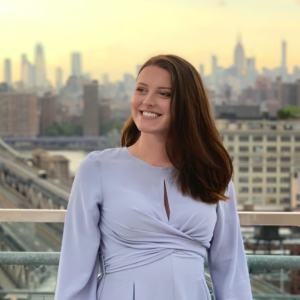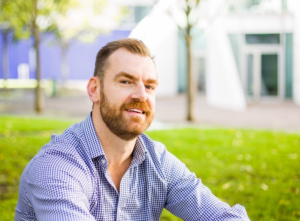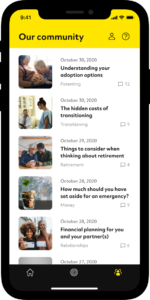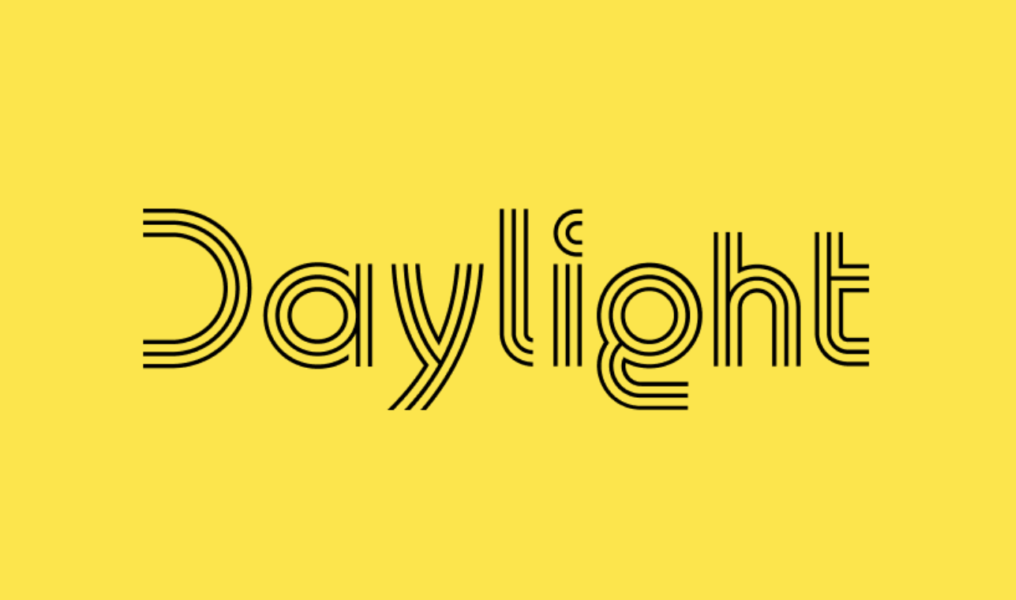Online banking is nothing new, but it's becoming increasingly popular. What is brand-new in the U.S. is a platform that "queers" the concept: It's called Daylight, and as co-founder Rob Curtis says, 'We're building a safe space for people's money.'"
Daylight, a start-up designed by LGBTQ+ millennials for LGBTQ+ millennials, launched with a small group of customers in December.
"We are exploring customers that are around somewhere between 28 and 40 years old," Curtis said. "We've chosen that group for a couple of reasons. Millennials are a little bit older, so they start to have financial goals that are very clear. So a little bit delayed compared to non-LGBT people. Our goal is to prepare them for a fulfilling future faster.
"That's where we start putting in place some of the solutions around improving their savings habits and that kind of thing," he added.
Ready to help improve those financial habits are financial coaches. Co-founder Billie Simmons described how they differ from financial advisors.
"They typically focus on slightly different areas," Simmons explained. "Financial advisors are typically for high net-worth individuals looking to adjust their sizable portfolio … whereas financial coaches focus more on a holistic look at your financial habits: things like budgets and goal setting and really helping you repair your relationship with money, ultimately."

Billie Simmons. Courtesy photo.
How Daylight is Different
Simmons went on to talk about a common pitfall that LGBTQ+ people experience in their interactions with financial professionals.
"We've spoken to literally thousands of LGBT people at this point and the narrative we hear a lot from gay men, for example, trying to access a financial coach or advisor, is, 'What does your wife do?'" Simmons said. "So there's a lot of this presumption of heterosexuality or being cisgender, and it's an alienating experience for a lot of LGBT consumers."
The goal, she said is to provide an "empathetic and understanding experience."
"There's shared language, there's shared understanding of that person's goals and lifestyle, and there's less of an emotional burden on the customer to educate the financial coach about who they are," she said.
As another example, Curtis talked about the fact that fewer LGBTQ+ people have wills than the non-LGBTQ+ population. It often goes back to one's upbringing and formative years.
"I think it's important to recognize that there's a strong social element to how young LGBT people are treated in adolescence that can have an ongoing effect in adult lives. So when you teach a child in the first 20 years of its life that it is unlikely to live, it's not gonna have a happy life, it's not gonna have kids, and so on and so forth, people begin to internalize this mindset," Curtis said. "And so what surprises me consistently when I talk to tech workers — wealthy people who are earning $200,000 a year don't have a will in place — and we ask them why, they say things like, 'Well I'm not gonna have kids,' or, 'I didn't think I was gonna live that long.'"
He went on to say that more than a financial advisor who's focused on numbers and projections, a coach offers the opportunity to "take a soft touch on some of those relatively unique things that come into the LGBT lived experience."

Rob Curtis. Courtesy photo.
Issues and Solutions
According to statistics provided by Daylight, 20 percent of the estimated 30 million-plus LGBTQ+ people in the U.S. are underbanked or unbanked. Curtis explained what that means and why it's a problem.
"They may be using payday lenders, they may be operating just on a spending card or they may be living entirely in a cash ecosystem," Curtis said. "And that's bad for a number of reasons because financial well-being means being able to progressively grow your money, and you can't do that unless you participate in the wider financial system."
He went on to say that in the LGBTQ+ community, the people who have less privilege than others — like people of color and the transgender community — tend to have lower use of traditional banking services.
"Our goal is to bring them into the banking ecosystem by tailoring products to their needs," Curtis said.
It was also pointed out that it simply costs more to be LGBTQ+: health care costs, the cost of having children, transitioning support are all costs that affect the LGBTQ+ community more commonly than those who are not LGBTQ+. Not only that, LGBTQ+ people often lack the financial support of family. That means they start out at a financial disadvantage.
Daylight offers not only the support of financial coaches, but also a "community" of members.
"We like to say we are built by the community for the community," Simmons said. "And so that is an ethos we carry within everything that we do. But beyond that, I think we're really inspired by the LGBT community's long history of supporting one another, whether that is financial, whether that is emotional, we have shown up for each other historically, and we've had to show up for each other historically because institutions and traditional methods of support are not really there for us."
She said that members eventually will be able to donate to each other's goals and provide advice and support.

A Local Take
Between The Lines consulted with a local banking professional who identifies as LGBTQ+ and is also a millennial. They wanted to remain anonymous to prevent a potential conflict of interest, but they said they were impressed with Daylight's concept. For one thing, they are well aware of the need for financial education within the LGBTQ+ community.
"There's a huge part of our community that they're more worried about where they're going to have shelter or their next meal and a job, so the financial side of it isn't even a factor," they said. "So they get a credit card and they're excited because they've never had one, and the next thing you know, they're in bankruptcy. Or they don't realize their credit scores are low 'cause they're using the whole line of credit."
On the other end of the spectrum, they brought up the high cost of surrogacy and planning how to finance that.
They added, however, that because the LGBTQ+ community is so relationship-based, a completely online community might not satisfy everyone. They pointed to banks that have a presence at local Pride festivals every year and to those financial institutions that are known to give grants to local LGBTQ+ organizations. Furthermore, some people simply prefer their brick-and-mortar branch. Yet they also sounded hopeful for the advantages LGBTQ+-specific online banking like Daylight could offer to individuals around the country with more limited in-person banking options.
Finally, they compared the financial industry to the automotive industry: when one company innovates, others soon follow. For example, they said some of the bigger banks are starting to offer debit cards with one's chosen name. But that's not yet a widespread practice.
With a platform like Daylight, they predict a positive outcome for the way financial institutions interact with LGBTQ+ people in general, going forward.
"It's gonna have the bigger banks look at them and [say], 'OK, we need to jump on board with some of this,'" they said. "And there are a lot of bigger banks that have done things like that. But is it enough? I think it's clear. If it was enough, we probably wouldn't be having this conversation."
Membership is currently on a rolling basis; a wider public launch is planned for July. Learn more at joindaylight.com.










